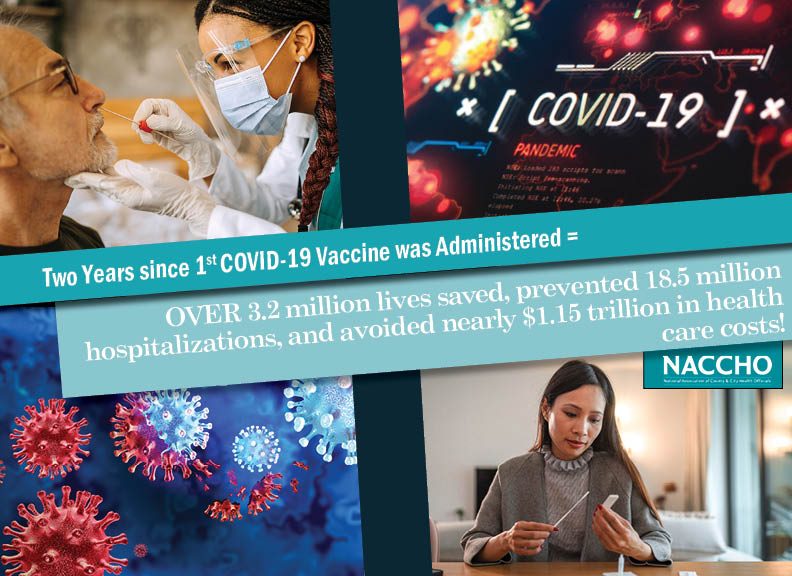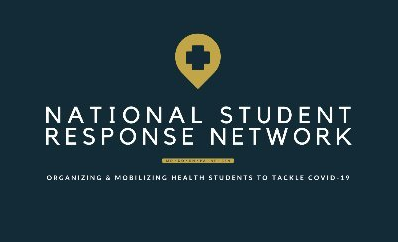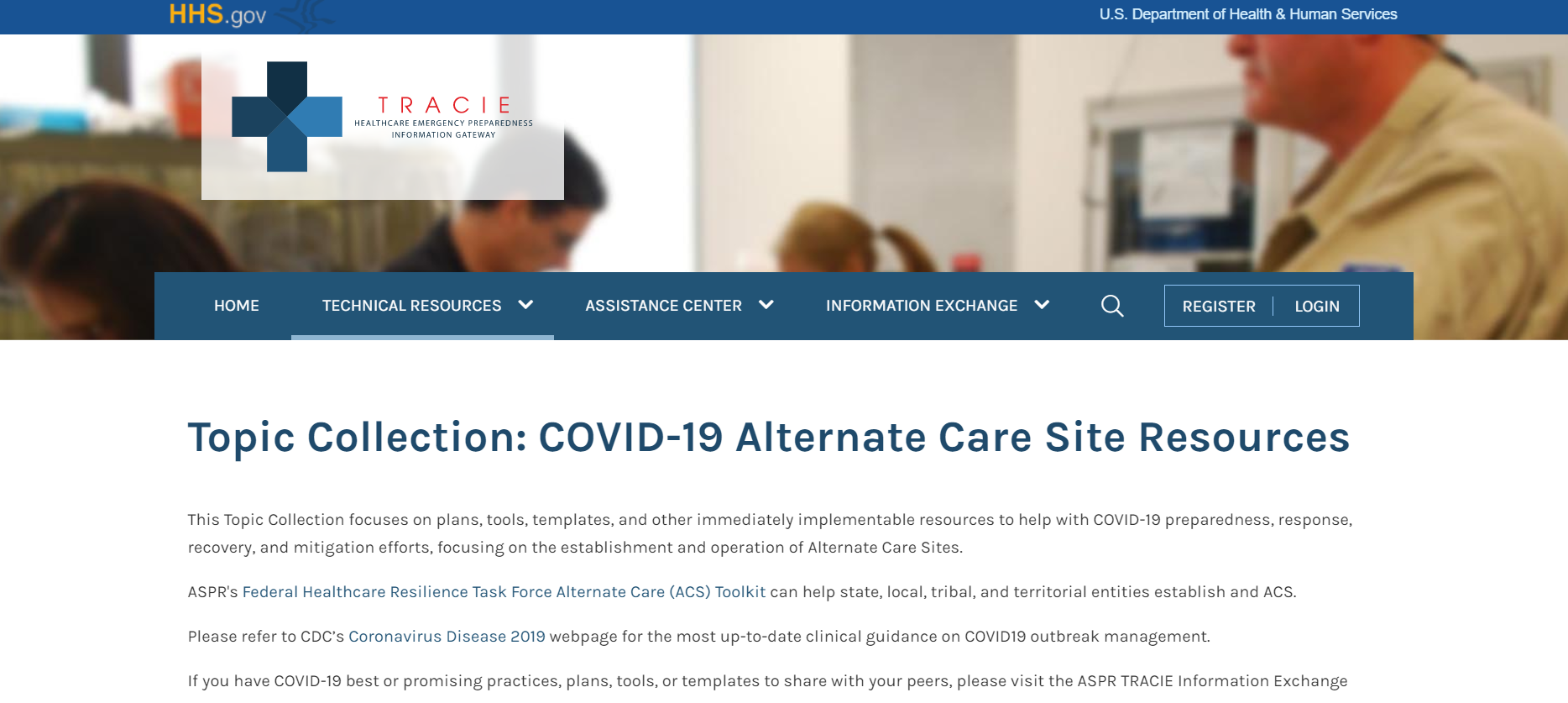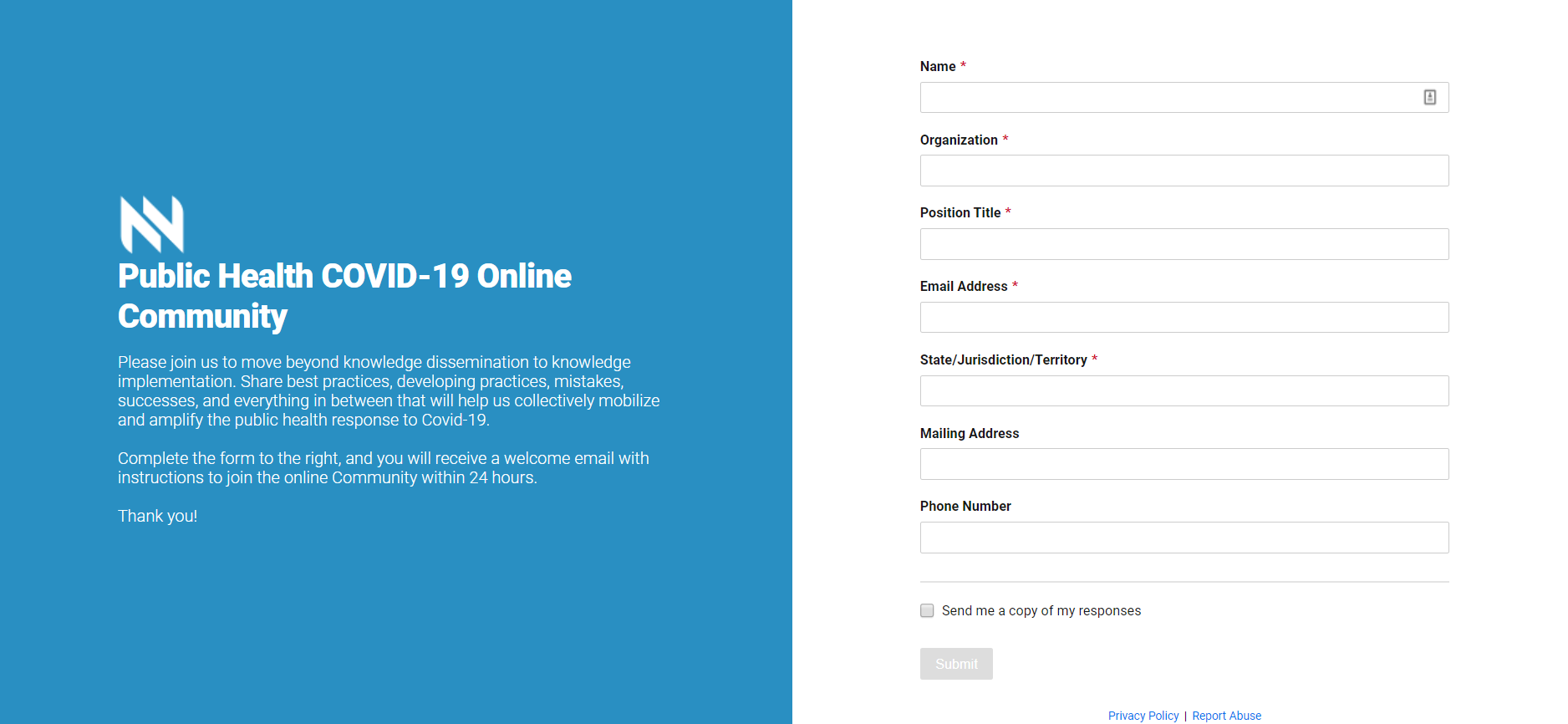Popular Categories
Summit Podcast Series: 100 Resilient Cities, Part One
In the second year of the Preparedness Summit Podcast series, take a deeper dive into the subject of preparedness with some of the...
May 31, 2016 | Mary Hodges
Summit Podcast Series: Lessons Learned from the Attempted Times Square Bombing
In the second year of the Preparedness Summit Podcast series, take a deeper dive into the subject of preparedness with some of the...
May 13, 2016 | Mary Hodges
“Not if, but When”: Experts Share Latest Zika Response Activities
By Andrea Grenadier, Communications Specialist, NACCHO Representatives from major public health organizations addressed attendees at...
May 02, 2016 | Mary Hodges
Using MAPP to Improve Community Resilience
Over the past two years, ASPR and NACCHO have been working together to identify and test ways in which local health departments can...
Apr 12, 2016 | Stephen Maheux
Amateur Radio Activities Return for 2016 Preparedness Summit
The ability to communicate is an essential component of all emergency response activities. During an emergency, there could be...
Mar 22, 2016 | Raymond Puerini
Strategic Planning and Training for Deploying Capable MRC Teams: An Interview with...
This is part of a series of interviews with local health department staff who will present at the 2016 Preparedness Summit. Lisa...
Mar 01, 2016 | Mary Hodges
New 2016 Preparedness Summit Plenary Announced
Making Smart Choices: Disaster Risk Reduction At Home and Abroad Between 2000 and 2011, more than 2.7 billion people were affected by...
Feb 24, 2016 | Mary Hodges
February 2016 Preparedness Policy Advisory Group Report
The Preparedness Policy Advisory Group (PPAG) held its monthly call on February 10. During this call, Lilly Kan, NACCHO’s Acting...
Feb 16, 2016 | Nicole Dunifon
2016 Preparedness Summit Closing Plenary Announced
Planning for the Marathon, Not the Sprint: Building Disaster Mental Health Recovery into Preparedness Planning The impacts of a...
Feb 10, 2016 | Mary Hodges
Summit Podcast Series: 100 Resilient Cities, Part OneIn the second year of the Preparedness Summit Podcast series, take a deeper dive into the subject of preparedness with some of the most fascinating Summit speakers. In this two-part post, Andrew Salkin, Chief Operating Officer of 100 Resilient Cities, shares more about this groundbreaking organization funded by the Rockefeller Foundation to help cities around the […] May 31, 2016 | Mary Hodges |
Summit Podcast Series: Lessons Learned from the Attempted Times Square BombingIn the second year of the Preparedness Summit Podcast series, take a deeper dive into the subject of preparedness with some of the most fascinating Summit speakers. Michael Frogel, Co-Principal Investigator for the New York City Pediatric Disaster Coalition shares his experience planning for a pediatric mass casualty event after the failed bombing attempt on […] May 13, 2016 | Mary Hodges |
“Not if, but When”: Experts Share Latest Zika Response ActivitiesBy Andrea Grenadier, Communications Specialist, NACCHO Representatives from major public health organizations addressed attendees at the 2016 Preparedness Summit in a late-breaking session that succinctly addressed the threats of Zika virus disease, as well as the latest scientific information and front-line response activities from both states and the federal government. The numbers growing... May 02, 2016 | Mary Hodges |
Using MAPP to Improve Community ResilienceOver the past two years, ASPR and NACCHO have been working together to identify and test ways in which local health departments can improve resilience in their communities. In March 2015, three local health departments were selected as test sites for a pilot program designed to test whether “Mobilizing for Action through Planning and Partnerships” (MAPP) […] Apr 12, 2016 | Stephen Maheux |
Amateur Radio Activities Return for 2016 Preparedness SummitThe ability to communicate is an essential component of all emergency response activities. During an emergency, there could be significant damage to communication infrastructure resulting in failures to successfully coordinate and carryout a response. In no-notice or rapidly developing emergencies, cellular communication networks can quickly become overwhelmed and cell phone communication could... Mar 22, 2016 | Raymond Puerini |
Strategic Planning and Training for Deploying Capable MRC Teams: An Interview with Lisa Vajgrt-SmithThis is part of a series of interviews with local health department staff who will present at the 2016 Preparedness Summit. Lisa Vajgrt-Smith, Medical Reserve Corps Coordinator, Contra Costa Medical Reserve Corps, previews her session, “Strategic Planning and Training for Deploying Capable Medical Reserve Corps (MRC) teams: Our Valley Fire Response.” At this session, Lisa will be […] Mar 01, 2016 | Mary Hodges |
New 2016 Preparedness Summit Plenary AnnouncedMaking Smart Choices: Disaster Risk Reduction At Home and Abroad Between 2000 and 2011, more than 2.7 billion people were affected by and $1.3 trillion dollars was lost due to disasters. Earthquakes, floods, droughts, and cyclones are natural hazards believed to be natural disasters that can’t be prevented. The concept of Disaster Risk Reduction states […] Feb 24, 2016 | Mary Hodges |
February 2016 Preparedness Policy Advisory Group ReportThe Preparedness Policy Advisory Group (PPAG) held its monthly call on February 10. During this call, Lilly Kan, NACCHO’s Acting Senior Director of Infectious Disease, provided an update on Zika. In addition, Katie Dwyer, Senior Program Analyst at NACCHO presented the preliminary results of NACCHO’s Preparedness Profile Survey. This presentation provided high-level results in the […] Feb 16, 2016 | Nicole Dunifon |
2016 Preparedness Summit Closing Plenary AnnouncedPlanning for the Marathon, Not the Sprint: Building Disaster Mental Health Recovery into Preparedness Planning The impacts of a disaster are complex, long-lasting, and require public health responses on multiple levels. Residents often battle symptoms of depression or post-traumatic stress disorder, which can reverberate into other parts of the community. These effects can continue long […] Feb 10, 2016 | Mary Hodges |
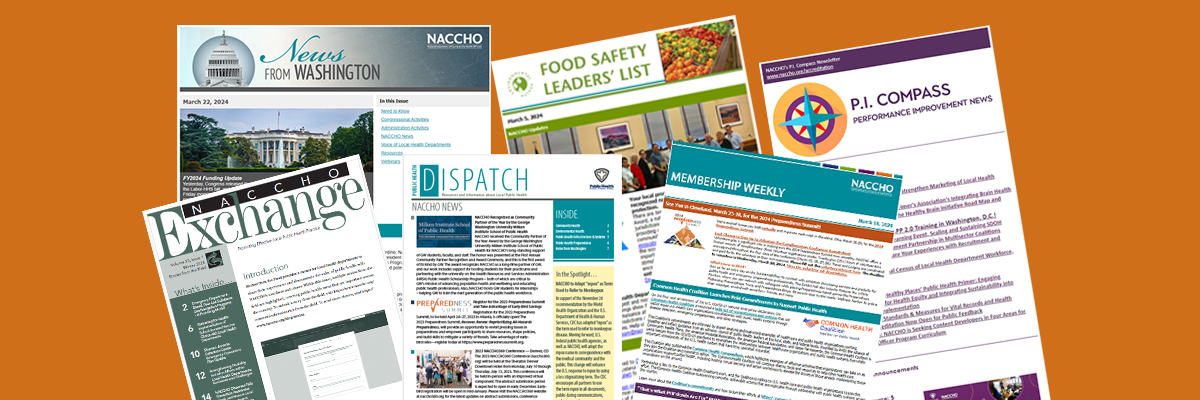
Subscribe Today
Sign Up for the E-mail Digests
Create an account or login to MyNACCHO and go to "My Subscriptions."
SUBSCRIBE NOW